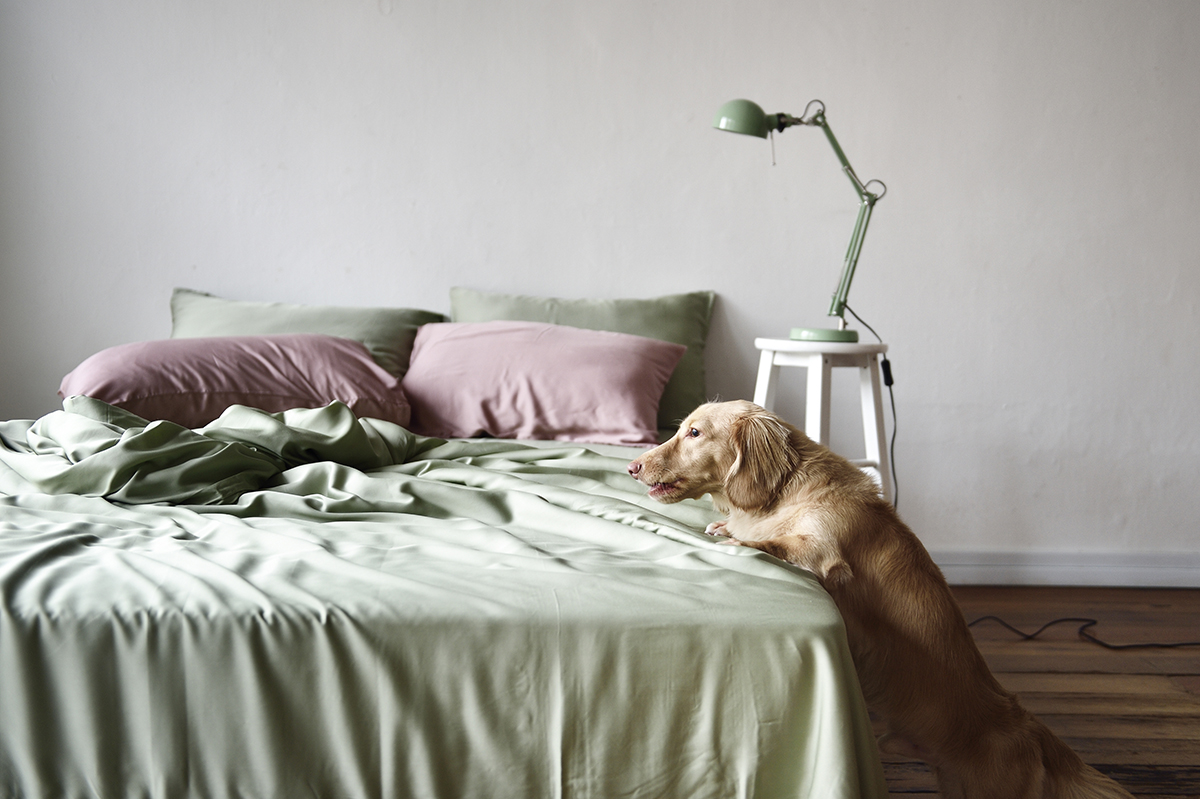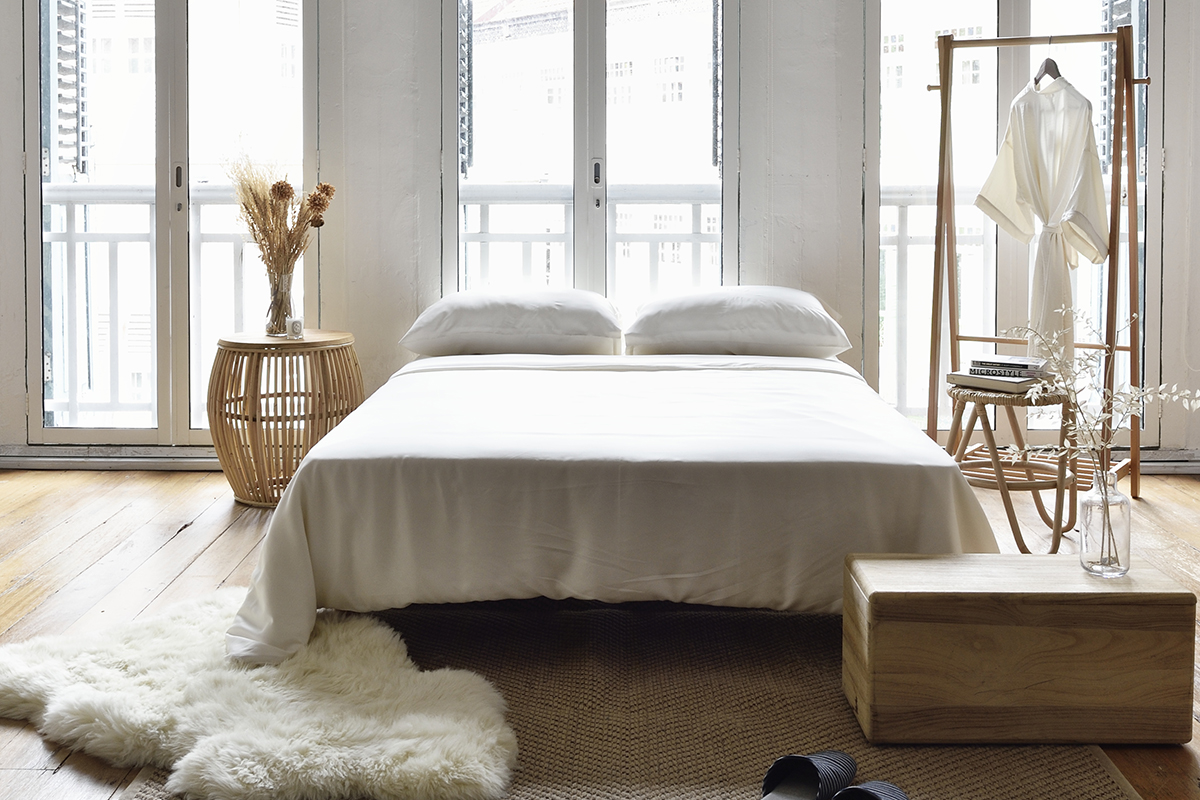With the sheer amount of bedding on the market, picking the right materials to suit your own sleeping needs may seem impossible. But worry not—with just a few tips and tricks from expert Clara Teo, co-founder of Sunday Bedding, you’ll have the right know-how to make the perfect pick.
SquareRooms: What’s one crucial thing homeowners overlook when they shop for bedding?
Clara Teo: The lifespan of bedding sets. On average, people change their bedding sets every year or so, which can generate a lot of textile waste. Investing in a good set-up is essential for ensuring quality rest and a healthier planet. Look out for bedding made with 100% natural fibres or regenerated fibres that are eco-friendly alternatives to polyester, manufactured using less water and without harsh chemicals and microplastics. Your sheets should ultimately have a lifespan of 3–10 years, with French linen being the most durable fabric option.
What’s the main difference between bamboo, cotton and linen sheets? Who would you recommend each material for?

For those who sleep with pets or kids, linen is a fuss-free and durable material that holds up well to frequent washing. Linen sheets can last up to 10 years or more and get softer with each wash. They’re also great for allergy sufferers as they don’t trap dust as easily as other materials do.
For people who sleep without air-conditioning, we highly recommend bamboo sheets as they are moisture-wicking and cool to the touch, making them ideal for our hot and humid climate.
If you’re less sensitive to heat, cotton is a highly versatile material and a perennial classic that’s also long-lasting and easy to maintain. After all, there’s a reason why hotels love cotton sheets!
We often hear of bedding made without “harmful chemicals”. What does this mean and how can it improve our sleep?
Harmful ingredients like formaldehyde and AZO dyes are commonly used in textile manufacturing. We highly recommend stepping away from those substances and opting for natural and organic materials when it comes to bedding. This is especially important for anyone with sensitive skin and allergies. When we sleep, our bodies heal, digest and repair cells, so it’s important to create a safe and natural environment to aid this process. Plus, when you choose natural and organic bedding you’re also making a better choice for the environment.
You can look out for particular labels when purchasing bedding, such as an OEKO-TEX certification, which ensures that no harmful substances were used during the production process, and the MADE IN GREEN label, which certifies that the product was made in socially responsible and sustainable conditions. Organic cotton is often labelled under the GOTS (Global Organic Textile Standard), which certifies organic production.
Homeowners often look for bedding with a high thread count. What are some alternative ways to recognise high-quality sheets?

Instead of focusing on the thread count, consider other factors that determine the quality and durability of sheets, such as the material and weave. If you’re choosing between weave types, the most common ones are percale and sateen. While percale is durable and lightweight, it can feel a little rough and has a matte finish. Sateen, on the other hand, has a smoother and more luxurious feel. How you pick ultimately depends on your personal preferences.
How should homeowners go about cleaning and maintaining their bedsheets? What’s something that should be avoided?
We recommend washing your sheets every two weeks, as our local moisture levels can cause bacteria to build up pretty quickly. If you have pets or kids, that frequency can go up even higher. Wash your sheets in the washing machine on the cool setting, using mild detergent and alongside similar colours. Opt for a line dry or a gentle tumble dry after washing. Avoid using fabric softeners and harsh liquid or powdered detergents, as well as products that contain benzoyl peroxide, chlorine bleach or alpha hydroxy acids.
Iron the sheets while still slightly damp to get rid of wrinkles with ease. Don’t let them sit in the dryer too long, as this will encourage further wrinkling. Make sure your bedding is clean and completely dry before storing it to avoid mould and mildew build-up, then fold and stack your sheets as neatly as possible to prevent wrinkling. We recommend using cloth bags, as they protect bedding from dust and bugs while still allowing moisture to escape.
This post was adapted from an article originally published in the February 2021 issue of SquareRooms.



